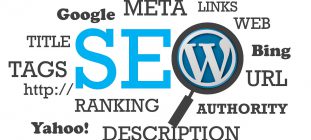
Pay-Per-Click (PPC) advertising is a powerful tool for driving targeted traffic to your website and generating leads. For businesses looking to maximize their online presence, understanding the key elements of a successful PPC campaign is crucial. This article will delve into these elements, providing insights into how to optimize your campaigns for the best results, with a particular focus on how PPC agencies can help generate leads.
1. Defining Campaign Goals
The first step in any PPC campaign is to define clear, measurable goals. These goals could range from increasing website traffic and boosting brand awareness to generating leads or sales. Your goals will determine your strategy, budget, and the metrics you need to track.
For instance, if the primary objective is to generate leads, your PPC campaign should focus on targeting specific keywords that potential customers are likely to use when searching for your services. PPC agencies specializing in lead generation can help refine these goals and ensure your campaign is aligned with your business objectives.
2. Keyword Research
Keyword research is the foundation of any PPC campaign. It involves identifying the terms and phrases that potential customers use when searching for products or services related to your business. Effective keyword research helps ensure that your ads appear in front of the right audience.
Utilize tools like Google Keyword Planner, SEMrush, and Ahrefs to find relevant keywords with high search volume and low competition. Long-tail keywords, which are more specific and less competitive, can be particularly effective for generating high-quality leads.
3. Ad Copy and Design
The quality of your ad copy and design plays a significant role in the success of your PPC campaign. Your ads must be compelling, concise, and relevant to the keywords being targeted. The headline should grab attention, and the description should provide a clear call to action.
Including keywords in your ad copy can improve its relevance and increase the likelihood of clicks. Additionally, using ad extensions, such as site links, call buttons, and location information, can enhance your ad’s visibility and effectiveness.
4. Landing Page Optimisation
Driving traffic to your website is only half the battle; converting that traffic into leads is the ultimate goal. This is where landing page optimization comes into play. Your landing page should be directly relevant to the ad and provide a seamless user experience.
Key elements of an effective landing page include a clear and compelling headline, a strong call to action, and a simple, user-friendly design. Ensure that the landing page loads quickly and is mobile-friendly, as a significant portion of users will be accessing it via mobile devices.
5. Targeting and Audience Segmentation
Targeting the right audience is crucial for maximizing the effectiveness of your PPC campaign. Platforms like Google Ads and Facebook Ads offer advanced targeting options, allowing you to segment your audience based on demographics, interests, behavior, and more.
PPC agencies can leverage their expertise to create detailed audience profiles and tailor your campaigns to reach these specific segments. This targeted approach can lead to higher conversion rates and more efficient use of your advertising budget.
6. Bid Management and Budgeting
Effective bid management is essential for maintaining control over your PPC budget and ensuring that you are getting the best return on investment (ROI). This involves setting bid amounts for your keywords and adjusting them based on performance.
Automated bidding strategies, such as target CPA (cost per acquisition) or target ROAS (return on ad spend), can help optimize your bids in real-time, ensuring that you achieve your campaign goals without overspending. Regularly reviewing and adjusting your budget allocation based on the performance of different keywords and ads is also important.
7. Ad Testing and Optimisation
Continuous testing and optimisation are key to improving the performance of your PPC campaign. A/B testing different ad copies, headlines, images, and landing pages can provide valuable insights into what works best for your audience.
Analyze the results of your tests and make data-driven decisions to optimize your campaign. PPC agencies often have sophisticated tools and methodologies for conducting these tests and implementing the findings effectively.
8. Performance Tracking and Analytics
Tracking the performance of your PPC campaign is essential for understanding what is working and what needs improvement. Key metrics to monitor include click-through rate (CTR), conversion rate, cost per click (CPC), and cost per acquisition (CPA).
Google Analytics and other analytics tools can provide detailed insights into user behavior and campaign performance. PPC agencies can help set up and interpret these analytics, offering recommendations for ongoing optimisation.
9. Competitor Analysis
Understanding what your competitors are doing can provide valuable insights and opportunities for your PPC campaign. Analyze their keywords, ad copy, landing pages, and overall strategy to identify gaps and areas for improvement.
Tools like SpyFu and SEMrush allow you to conduct detailed competitor analysis and benchmark your performance against industry standards. PPC agencies often have access to advanced tools and can conduct in-depth competitor analysis to inform your strategy.
10. Compliance and Best Practices
Adhering to advertising policies and best practices is essential for the success and sustainability of your PPC campaign. Each platform has its own set of guidelines regarding ad content, targeting, and landing page requirements.
Staying compliant ensures that your ads are approved and reduces the risk of account suspension. PPC agencies stay updated with the latest policies and best practices, ensuring that your campaigns are not only effective but also compliant.
Conclusion
A well-executed PPC campaign can be a game-changer for businesses looking to generate leads and drive targeted traffic to their website. By focusing on key elements such as goal setting, keyword research, ad copy, landing page optimisation, and continuous testing, you can maximize the effectiveness of your campaign.
PPC agencies play a crucial role in navigating the complexities of PPC advertising. Their expertise in lead generation, audience targeting, bid management, and performance tracking can help you achieve your business goals more efficiently and effectively.
Investing time and resources into understanding and implementing these key elements will ensure that your PPC campaigns are successful, delivering a high return on investment and driving significant business growth.


















